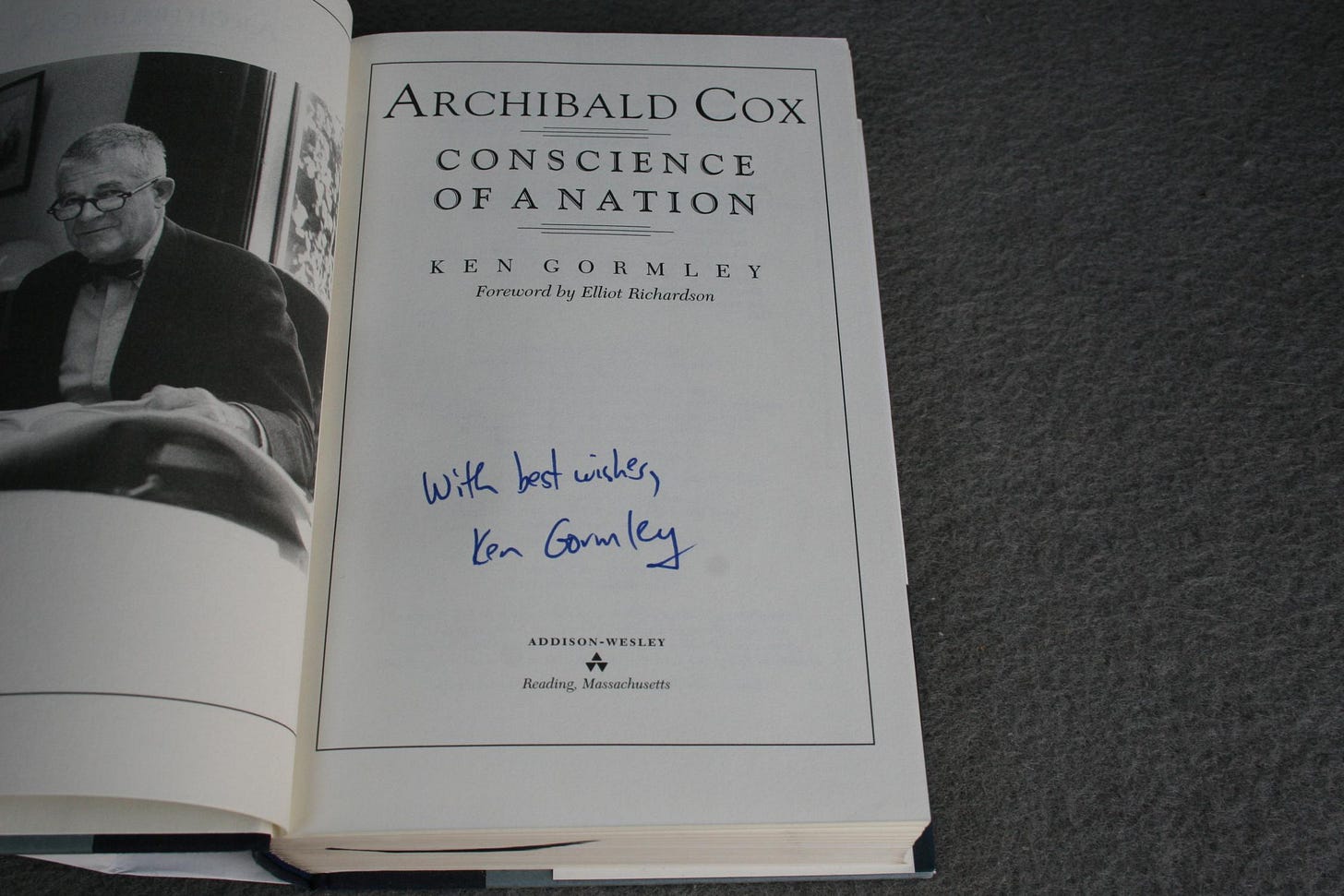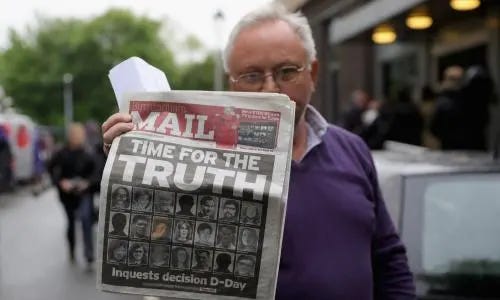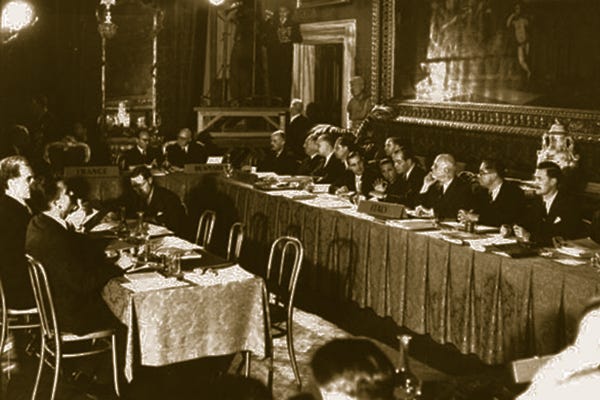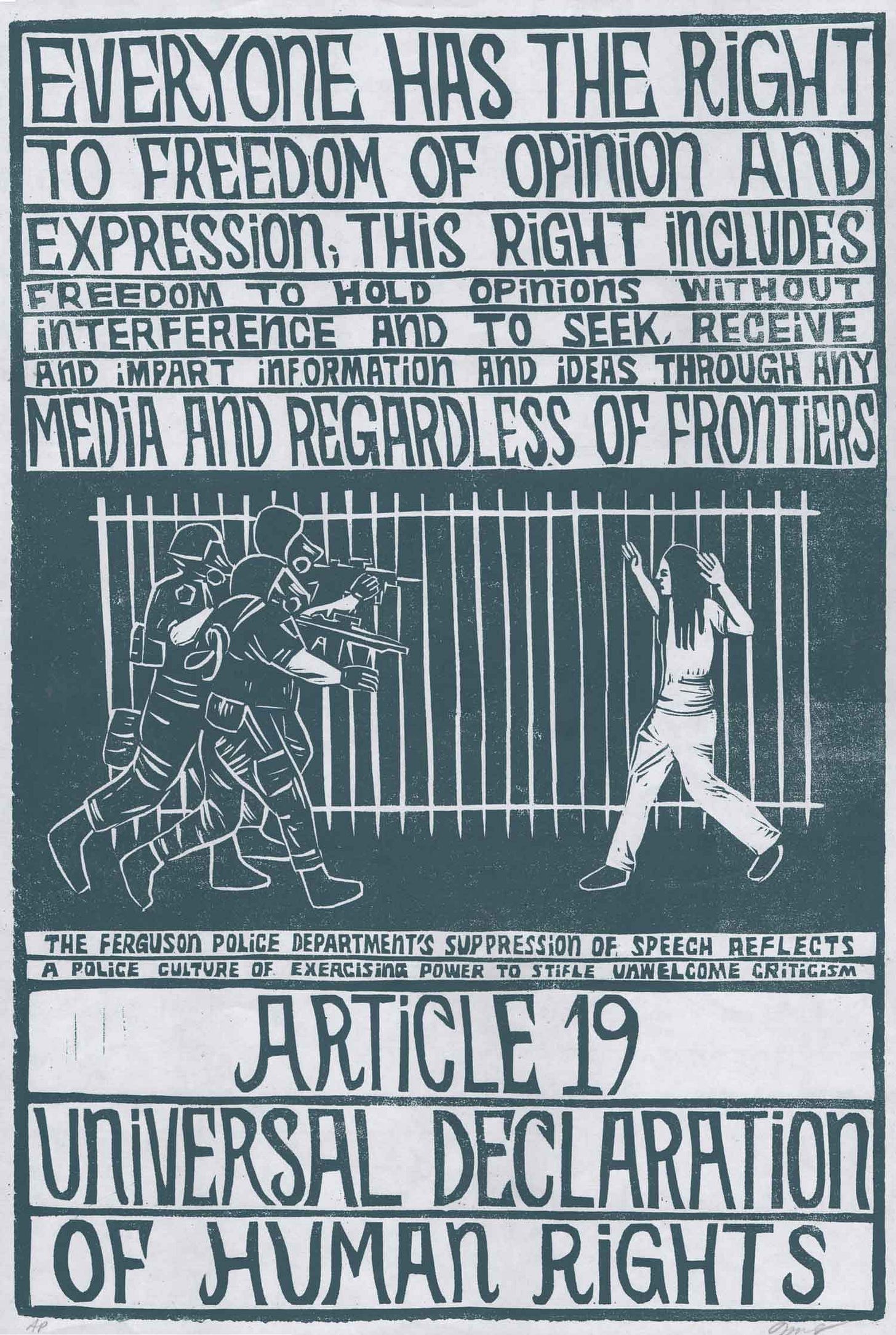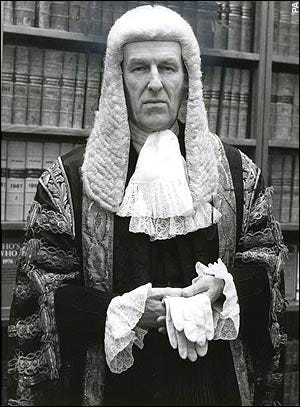Preserving Freedom of Expression: The Danger of Censorship in the Name of Veracity
Analysis of the Misnamed Digital Services Law - REGULATION (EU) 2022/2065 OF THE EUROPEAN PARLIAMENT AND OF THE COUNCIL of October 19, 2022
The European Commissioner for the Internal Market, Thierry Breton, responsible for the new laws that the EU is promoting to regulate platforms and artificial intelligence, has traveled to the US to meet with Elon Musk, owner of Twitter, Meta, and OpenAI, the company that has created ChatGPT.
Breton went to the Twitter headquarters to meet with Elon Musk to check his measures to comply with the digital services law.
The EU leaves the power of censorship in the hands of internet giants
The EU Digital Services Act is a regulation, not a Law, which has generated controversy due to the way it empowers online platforms to censor information. This regulation allows social networks and governments to decide what content is "harmful" or constitutes disinformation, even if it is not illegal. This poses a danger to freedom of expression since there is no independent body that reviews these decisions and guarantees respect for this fundamental right.
One of the most worrying aspects of the EU Digital Services Law is the lack of judicial control in the censorship of content. This absence of supervision by an independent power directly affects the fundamental right to freedom of expression. In a true democracy, it is crucial to guarantee the separation of powers and that decisions affecting freedom of expression and access to information are legitimately made through an impartial judicial process.
The challenge to the Constitution and the lack of democratic guarantees
One of the most worrying aspects of the EU Digital Services Law is the lack of judicial control in the censorship of content. This absence of supervision by an independent power directly affects the fundamental right to freedom of expression. In a true democracy, it is crucial to guarantee the separation of powers and that decisions affecting freedom of expression and access to information are legitimately made through an impartial judicial process.
The challenge to the Constitution and the lack of democratic guarantees
The regulations imposed by the EU about the Digital Services Law go against the principles established in the Spanish Constitution. In Spain, prior censorship is prohibited and any action to block information is required to have the corresponding judicial authorization. However, European law allows online platforms to decide what content to censor without proper judicial oversight. This lack of democratic guarantees calls into question the system of separation of powers and threatens a free and democratic society.
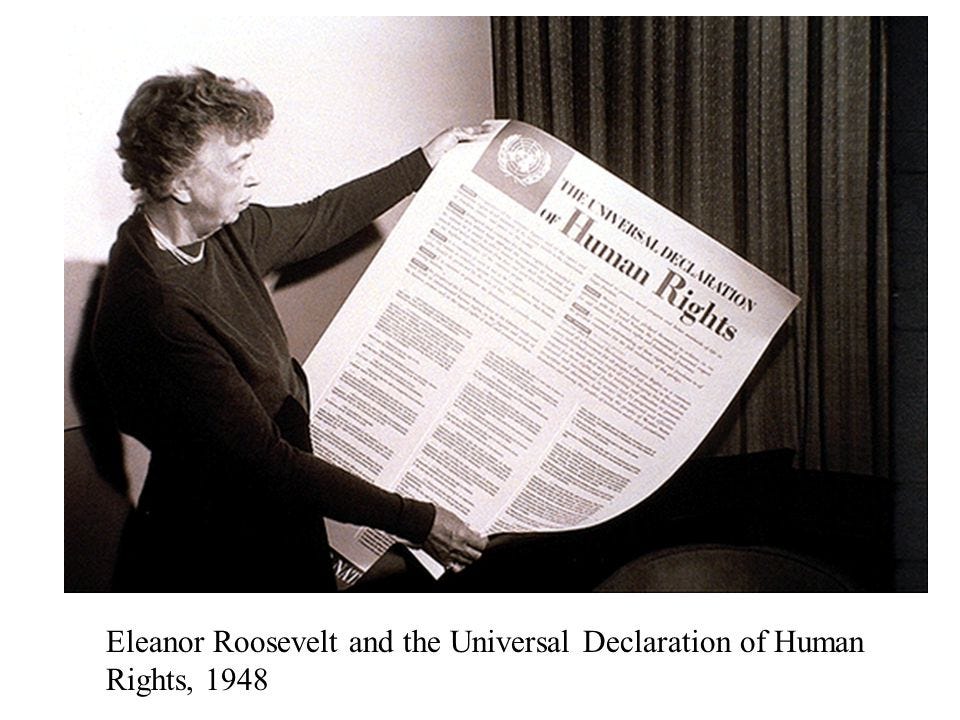
How we can coexist peacefully despite conflicting values
Article 19 of the Universal Declaration of Human Rights states:
"Everyone has the right to freedom of opinion and expression; this right includes freedom to hold opinions without interference and to seek, receive and impart information and ideas through any media and regardless of frontiers."
The significance of Article 19 lies in its explicit and undeniable transnational nature. The phrase "regardless of frontiers" affirms that as human beings, we possess the right to share information with anyone, irrespective of their country of origin. Medical professionals are entrusted with the responsibility to disseminate facts to the world, and scientists and medical researchers are obligated to communicate the truth, regardless of its source or any discomfort it may cause. Borders hold no power against ideas or ideals, which is precisely why tyrants across the globe consistently target independent medical doctors and scientists.
In the realm of a corrupt liberal democracy, control is exerted through the promotion of studies that conveniently omit crucial details. Uncomfortable facts are marginalized and censored, while access to relevant information is restricted. Independent medical doctors are unjustly subjected to surveillance through "watch lists" and exclusion from travel without health passes, all because they visit countries deemed as "enemies." Much of this repression occurs within the boundaries of the law, as the laws themselves often serve as accomplices to corruption and moral decay. This subtle manipulation is arguably even more insidious than the blatant violation of Article 19 witnessed in tyrannical dictatorships.
The justification for imposing censorship on medical professionals who question prevailing scientific narratives is flawed on multiple levels. Freedom of expression and the unrestricted exchange of ideas are fundamental tenets of a democratic society. By stifling dissent and suppressing alternative viewpoints, we risk hindering the progress of science and impeding the search for truth. Open dialogue and rigorous debate, even when uncomfortable, are essential for scientific advancement and the pursuit of knowledge.
Furthermore, the imposition of censorship on doctors who question established scientific norms can have grave consequences for public health. Science is not infallible, and challenging prevailing theories is an integral part of the scientific process. By discouraging critical thinking and dissent, we run the risk of perpetuating misinformation and hindering medical breakthroughs.
Ultimately, the freedom to question and express dissenting opinions is essential for the progress of society as a whole. By embracing a diverse range of perspectives, we can foster innovation, deepen our understanding, and find common ground even when our values and beliefs diverge. It is through respectful engagement and the freedom to express dissent that we can strive to live peacefully with one another, despite our differences.
The Digital Services Law reveals a worrying trend in the fight against disinformation, where it is observed that in order to disassociate themselves from compliance with their constitutional obligations, concerning fundamental human rights and public freedoms
In the context of health and emergency, this sentence implies that the contents of doctors and scientists cannot be censored, even in times of crisis, since they form part of informed public opinion and contribute to a healthy debate. By the principles established in the International Covenant on Civil and Political Rights of New York and the Convention for the Protection of Human Rights and Political Freedoms of Rome, the right of health professionals to freely express their opinions and knowledge. Not only the WHO, other international private commercial entities or medical colleges, In the context of health and emergency, but this sentence also implies that the contents of doctors and scientists cannot be censored, even in times of crisis, since they form part of informed public opinion and contribute to a healthy debate. By the principles established in the International Covenant on Civil and Political Rights of New York and the Convention for the Protection of Human Rights and Political Freedoms of Rome, the right health professionals to freely express their opinions and knowledge. Not only the WHO, other international private commercial entities or medical colleges,
The censorship established by network platforms due to the improper application of the Digital Services Law about the freedom of expression of doctors and scientists in times of emergency is contrary to the following:
Safeguarding public health: The free expression of doctors and scientists is essential to provide accurate and up-to-date information on health issues, which is essential to protect the health and well-being of the population.
Scientific debate and advancement of knowledge: Freedom of expression allows the exchange of ideas and scientific debate, which promotes the advancement of knowledge and the adoption of more effective approaches in emergencies.
Transparency and trust in institutions: The free expression of doctors and scientists promote transparency in decision-making and strengthens the trust of citizens in the institutions in charge of managing emergencies libelous.
Right to information: Citizens have the right to access diverse information, especially at critical moments. Censorship of medical and scientific content would limit this right and could lead to harmful misinformation.
Applying this interpretation to the opinions of doctors who question scientific narratives, we can say that, by expressing our doubts and opinions on issues related to science, we are exercising our right to freedom of expression. Although these views may be controversial or at odds with mainstream thought, even in the fight against disinformation they are protected by the right to freedom of expression, as long as unnecessary libelous or defamatory language is not used. Remember that the right to freedom of expression does not require the veracity of the opinions expressed, since these are personal and subjective judgments and evaluations of science and not statements of objective facts. In this way, since there is no illegitimate interference in anyone's honor, the freedom of expression of doctors must be respected and an open and plural debate in society is encouraged.
The Digital Services Law is a regulation (freedom of expression can only be limited in certain circumstances in a motivated and communicated manner, for periods very well defined by norms with the rank of Law, not regulations). The so-called Digital Services Law raises legal conflicts about the elimination of content on network platforms, since as I said it allows the censorship of content even if said content is not illegal or illegal. This lack of guarantees and supervision by the judicial authorities of the Member States jeopardizes the protection of freedom of expression, the right to free and independent information,n and the fundamental rights of all citizens in general. Besides, there is the possibility that measures are adopted that promote monopoly, (which occurs in fact checkers), or the concentration of information sources, which may result in the unjustified elimination or blocking of content on the Internet. With the Digital Services Law, these censorship actions may be carried out in a non-transparent manner and may unnecessarily limit freedom of expression. An appropriate balance has not been found that protects both security and fundamental rights in the digital environment. With the Digital Services Law, these censorship actions may be carried out in a non-transparent manner and may unnecessarily limit freedom of expression. An appropriate balance has not been found that protects both security and fundamental rights in the digital environment. With the Digital Services Law, these censorship actions may be carried out in a non-transparent manner and may unnecessarily limit freedom of expression. An appropriate balance has not been found that protects both security and fundamental rights in the digital environment.
With this regulation, the relevant provisions of the Charter of Fundamental Rights of the European Union and the ECHR are not being fully respected.
The Danger of Censorship in the Name of Veracity
In the same way that "what is a crime in real life is also a crime on social networks and the perpetrators have to answer for it", we can say that on network platforms, in the information age, freedom of Expression continues to be a fundamental right that guarantees the diversity of opinions and the free flow of information
However, as noted by the prominent human rights expert, Carolina Botero Marino, former Special Rapporteur for Freedom of Expression of the Inter-American Commission on Human Rights (IACHR) of the OAS. “ Sin embargo, como ha señalado la destacada experta en derechos humanos, Carolina Botero Marino, ex Relatora Especial para la Libertad de Expresión de la Comisión Interamericana de Derechos Humanos (CIDH) de la OEA. “A system that seeks to control the right to expression in the name of correctness and veracity of information can be prone to serious abuses and, ultimately, violate the right to information of society itself. Un sistema que busca controlar el derecho a la expresión en nombre de la corrección y veracidad de la información puede ser propenso a graves abusos y, en última instancia, violar el derecho a la información de la sociedad misma. It is contradictory to invoke restrictions on freedom of expression as a means to guarantee it
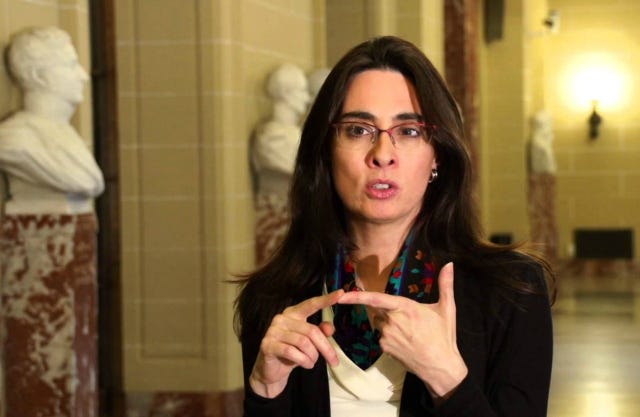
Therefore, any established system must avoid falling into censorship of freedom of expression under the excuse of controlling quality, information veracity, public order, or health. These disproportionate and highly dangerous restrictions could lead to authoritarian abuses and shield the government against criticism of its political management.
The risk is intensified when members of the Government try to arrogate the power to decide what information or opinions are "true" or "correct" so that the public knows them. This would imply the existence of a single unquestionable truth and would lead to government control of the media, hindering the work of investigative journalists, weakening public debate, and limiting the exchange of ideas.
In a democratic environment, it is essential to foster a society in which all voices are heard and where there is space for debate and disagreement. The diversity of opinions is essential for the progress and evolution of society. Freedom of expression should not be unfairly restricted under the pretext of protecting truthfulness, since truth is a complex and multifaceted concept that can be interpreted in different ways.
It is the responsibility of governments and institutions that network platforms guarantee an adequate balance between the protection of society and respect for fundamental rights. The control mechanisms must be transparent, impartial, and at least subject to prior judicial review, the elimination of content by the platforms of the opinions of scientific doctors that they question, as long as they do not encourage violence or violate the honor of anyone. Confidence in freedom of expression is essential for the development of an informed and engaged society.
We cannot face problems if we are unaware of them. Therefore, we must be vigilant against any attempt to impose excessive restrictions on freedom of expression in the name of truthfulness. Diversity of opinion is the very essence of a democratic society and the ability to question and debate is the very essence of medical science. Preserving and protecting this fundamental right is essential for the development and well-being of our society as a whole.
Archibald Cox, a prominent American lawyer and law professor, became famous for his role as Special Prosecutor during the Watergate scandal in the 1970s. His independent investigation unraveled a massive cover-up of illegal activities involving the government of then-President Richard Nixon. Cox demonstrated his integrity and dedication to the law by courageously standing up to a powerful government in pursuit of truth and justice.
Amid the fight for transparency and the rule of law, Archibald Cox uttered a phrase that has become a timeless reminder of the importance of free speech and the need to challenge the absolute claims of any entity, including the government. Cox stated: "No man, no committee, and certainly no government, has the infinite wisdom and selflessness to accurately and unselfishly separate what is true from what is debatable, and these two from what is false.
As I have discussed in several of my substacks, the Digital Services Law and the restrictions imposed by the WHO and governments on the dissemination of information pose a challenge to the fundamental right of freedom of expression. Cox's quote reminds us that no organization (WHO), agency, or entity has the infallible ability to decide what is true and what is debatable, let alone what is false. It is in the exchange of ideas, open discussion, and free expression that lies the key to a healthy debate and an informed society.
The legacy of Archibald Cox inspires us to remain vigilant and defend the right to freedom of expression, avoiding the temptation of allowing the government or any organization, or entity, let alone a business such as fact-checkers, to have the absolute power to determine the truth. As Cox said, the wisdom and impartiality necessary to distinguish the truth from the debatable and the false cannot be attributed to any entity. It is a valuable reminder that we must protect our freedom of expression and challenge any attempt to control information and limit open discussion on the networks when we know they are already part of our society.
"The "Laincompatibility between "purifying" censorship and democratic principles is undeniable since granting the Government arbitrary power so that network platforms are the ones who decide on the truth and the scope of freedom of expression would undermine the foundations of democracy. This fundamental right has a crucial institutional dimension since it guarantees free public opinion and stands as a fundamental pillar of a democratic and free society.
The European Court of Human Rights (ECHR) recognizes a violation of the freedom of expression protected by Article 10 of the European Convention on Human Rights (“Everyone has the “right to freedom of expression. This right includes freedom of opinion and freedom to receive or communicate information or ideas, without the possibility of interference by public authorities and regardless of borders") in the case ECHR Times Newspapers Ltd v. the United Kingdom (nos. 1 and 2), nos. 3002/03 and 23676/03, § 27, 10 March 2009.”)
In this case, Times Newspapers Ltd, a British media company, challenged a court order preventing them from publishing certain information. The ECHR examined whether this restriction on freedom of expression was justified and in line with the principles of the Convention.
In its ruling, the court noted in paragraph 27 that freedom of expression is one of the fundamental pillars of a democratic society and stressed the importance of allowing a wide margin of appreciation to the media in the exercise of this right. The ECtHR stressed that, in situations of general interest, the media must have the possibility to offer information on matters of public relevance, even if this information may be controversial or uncomfortable for certain individuals or institutions.
As highlighted by the European Court of Human Rights in the case ECHR Times Newspapers Ltd v. the United Kingdom (nos. 1 and 2), nos. 3002/03 and 23676/03, § 27, 10 March 2009, freedom of expression is not limited solely to the dissemination of ideas or opinions that are accepted or considered harmless, but also protects those that contradict, clash, or disturb the State or to any part of the population. Likewise, the court established that “Not only the press has the task of imparting said information and ideas, but the public also has the right to receive them. In this way, the press fulfills its vital role as "public watchdog" (Observer and Guardian v. the United Kingdom, November 26, 1991, § 59, Series A no. 216).
In the case Observer and Guardian v. the United Kingdom - - 13585/88 13585/88judged on 11.26.1991.
The plenary session of the European Court of Human Rights (13585/88 | Judgment (Merits and Just Satisfaction) recalls that freedom of expression constitutes one of the essential foundations of a democratic society; subject to the provisions of paragraph 2 of article 10 ( art. 10-2), is applicable not only to "information" or "ideas" that are received favorably or are considered harmless or indifferent, but also to those that offend, shock or disturb that especially solid reasons must be provided for any measure that limits access to information that the public is entitled to receive.
The court states that "the enjoyment of the rights and freedoms proclaimed in [the] Convention shall be guaranteed without any discrimination based on sex, race, color, language, religion, political or another opinion, national or social origin, belonging to a national minority, economic position, birth or any other condition.
The sentence establishes the following: "In a free and democratic society there can be no space, in peacetime, for restrictions of this type, and particularly not if they are resorted to, as in the present case, by "governmental suppression of embarrassing information or ideas.”
Therefore, this broad protection includes even those expressions that could be considered a "hybrid threat" according to the concept used in National Security. Under no circumstances can we allow discrimination based on opinion. It is necessary to emphasize that what can worry the WHO or the State not only challenges democratic values but also reflects the vitality of an open society and the very essence of democracy.
This case highlighted the need to protect and safeguard freedom of expression as a fundamental right in democratic societies, recognizing that the media or network platforms play a crucial role in disseminating information and fostering public debate.
In this context, as of March 14, 2020, there has been a violation of Article 10 of the Rome Convention by network platforms, by removing content from doctors or scientists without the consent of their creators, it has also violated the Right to receive information, which is the second component of Article 10 of the Rome Convention, during the entire period from the WHO emergency declaration to the declaration of the end of the emergency.
Social networks and Internet platforms must play a fundamental role in the exercise of freedom of expression, since freedom of opinion means that the State cannot authorize the large network platforms so that, on the one hand, they allow the dissemination of ideas and opinions, but on the other, prevent or hinder those that may be uncomfortable or controversial for some sectors. These platforms should act as a means for individuals to express themselves and participate in public debate, thus ensuring public access to news and the dissemination of information.
Freedom of expression in the digital environment is not only about sharing popular or consensual ideas, but also about challenging dominant narratives, questioning the status quo, and giving voice to divergent perspectives. It is through this exchange of ideas and opinions, even those that are contrary or disturbing, that a society can grow, learn and advance not only in its democratic development but also in medicine, health, and science.
However, the platforms, the WHO,, and the states are confusing the balance between the protection of freedom of expression and the preservation of other fundamental rights, such as respect for human dignity, no incitement to hatred or the dissemination of false information. harmful. The regulation of these platforms must be based on safeguarding international human rights standards, avoiding any form of censorship that unfairly restricts freedom of expression, only then is the correct application of the principles of proportionality possible.
Freedom of expression is a fundamental pillar of a free and democratic society. However, the big platforms have not been able to find a balance that protects fundamental rights without imposing disproportionate restrictions on freedom of expression.
Jurisprudence and international principles support the importance of guaranteeing the freedom of expression of doctors and scientists, even in times of emergency. This contributes to a more informed, healthy, and democratic society, where constructive debate is promoted and the fundamental rights of all citizens are protected. And not only the rights that, through international treaties, but amendments to the International Health Regulations, Digital Services Regulations, companies with private interests also want to arrogate, with which they are internet platforms, through the interference of international organizations in international law, as the WHO and the states do, which suspends their actions regarding the fundamental human rights of all citizens by not guaranteeing the right of the public to be informed by means other than propaganda and imposing the removal of content based on mere assumptions.
The rules of the Rome Convention must be considered an integral part of the Community legal order ratified by all the Member States, applied to the broadcasting and distribution of television services, or the networks is also a specific manifestation in Community law of a more general principle, namely, freedom of expression. Consequently, this right must be respected by community bodies.
Eminent Justice William Nigel Bridge,
Baron Bridge of Harwich, also known as Lord Bridge of Harwich in the context of the Derbyshire County Council v. Times Newspapers Ltd. aptly observed in the House of Lords:
"Freedom of expression is always the first casualty under a totalitarian regime." If the government is determined to fight to keep the ban to the end, it will inevitably face condemnation and humiliation by the European Court of Human Rights in Strasbourg. Long before that, they will have been condemned in the bar of public opinion in the free world.
Lord Bridge spoke out on the issue of freedom of expression and warned of the dangers of restricting this freedom in a totalitarian regime. The quote emphasizes the importance of freedom of expression as a fundamental right that must be protected. Lord Bridge held that if a government is determined to maintain a ban or restriction on freedom of expression, it will face condemnation and humiliation both at the European Court of Human Rights in Strasbourg and in international public opinion."
“The Council of Europe has, together with the bodies of the European Convention, a crucial task: to introduce true freedom of expression in all its forms and, at the same time, guarantee the right of the public to receive information. This acquired democratic right must be preserved if we want to protect freedom of thought! “(STHDH STHDH dissenting magistrates Pettiti, and Pinheiro Farinha Observer And Guardian Case Versus The United Kingdom Application no. 13585/88 ). Dissenting judges Pettiti, and Pinheiro Farinha Case Observer And Guardian Versus The United Kingdom Application no. 13585/88). The fight against misinformation should not be used as an excuse to limit the freedom of expression of doctors and scientists.
Attempts are made to silence the voices of health experts and professionals who ask uncomfortable questions or present opinions contrary to the mainstream. Under the justification of fighting misinformation, they seek to impose a single discourse and limit freedom of expression.
In this substack, I highlight the importance of freedom of expression as an essential element of democracy. I highlight the incompatibility of any form of censorship that tries to be a selective filter of the truth, since through the dirty work of network platforms, the Government grants itself absolute power over information to limit the free expression of citizens. I underline the central role of freedom of expression in the formation of an informed public opinion and how its full exercise is essential for the functioning of a free and democratic society. In addition, I expressly cite the Constitutional Court and the European Court of Human Rights, to support this vision and emphasize the need for freedom of expression to develop without restrictions, even in the environment of social networks
In attempting to censor the issues being raised by doctors and scientists, citing the fight against misinformation as an excuse, those who strive to undermine these values should reflect and blush for their actions, as they are undermining the fundamental pillars of our society.
Rather than silencing those who disagree, they should foster an environment conducive to open, evidence-based debate founded on mutual respect.





